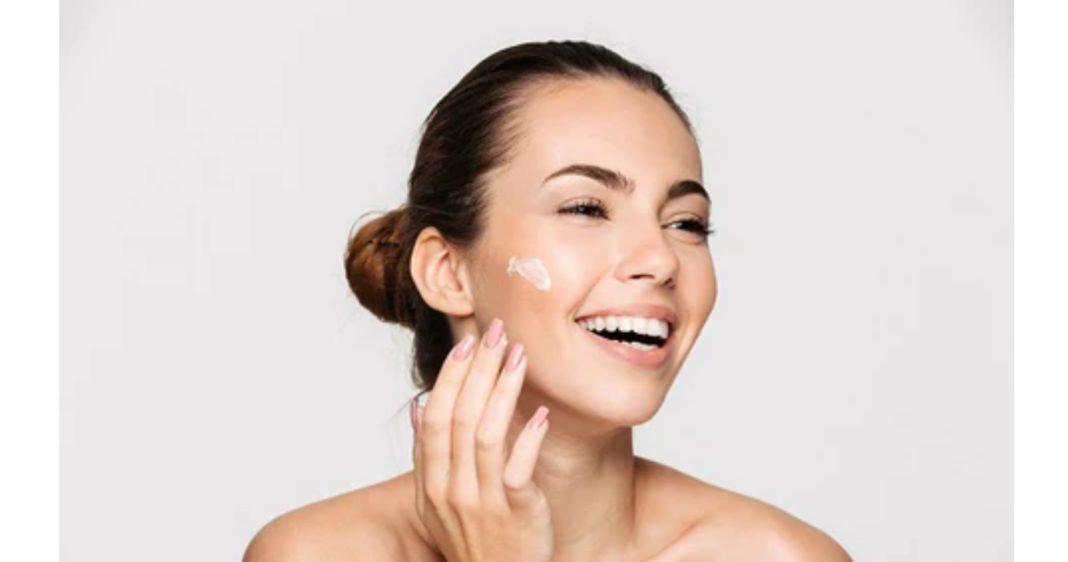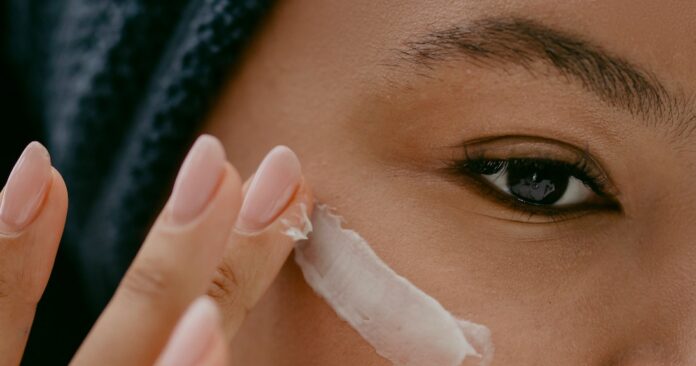Introduction
You’d agree that in the world of skincare products, only a few substances have garnered as much traction as glutathione. This naturally occurring antioxidant isn’t just a buzzword; it plays a vital role in maintaining healthy skin. Sadly, we are in a world filled with lots of physical, chemical, and biological factors that could damage your skin, and many people today are suffering or have once suffered from several skin diseases. It’s not surprising that, with a net worth of $579 billion in 2023(1), the beauty industry is one of the biggest industries in the world.
Alright, first things first. You might be wondering, “What’s the big deal with glutathione?” Well, think of it as your skin’s very own defense system. Glutathione is an antioxidant found in fungi, plants, and other organisms, which means it fights off those sneaky molecules called free radicals and peroxides, the main factor responsible for cell damage that results in wrinkles, hyperpigmentation, dead cells on your skin(2).
Hence, in this article, we’ll delve into the world of glutathione, exploring its potential benefits for skin whitening, and anti-aging effects, and shedding light on potential side effects. Glutathione’s impact on skin health goes beyond the surface, making it an intriguing subject of study and discussion. Let’s get started already.
Table of Contents:
What is Glutathione and How Is It Secreted?
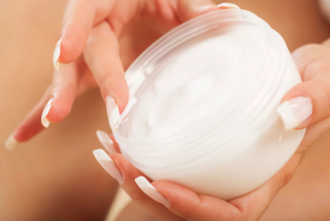 Glutathione, an antioxidant naturally found in the body plays a role, in safeguarding cells against stress-induced damage. It is composed of three acids; Cysteine, glutamine, and glycine. It acts as a shield against free radicals and reactive oxygen species that can harm cells and contribute to various health concerns like aging and chronic diseases(3).
Glutathione, an antioxidant naturally found in the body plays a role, in safeguarding cells against stress-induced damage. It is composed of three acids; Cysteine, glutamine, and glycine. It acts as a shield against free radicals and reactive oxygen species that can harm cells and contribute to various health concerns like aging and chronic diseases(3).
The production of glutathione occurs within cells through a series of reactions. The process initiates with cysteine, which is often the limiting factor due to its availability. Cysteine can be obtained from the diet or through the breakdown of proteins within the body.
Once synthesized glutathione is distributed throughout the cells serving as a defense system against stress. It helps maintain a balance between oxidized and reduced forms of molecules within cells—an aspect, of health and overall well-being (4).
Various factors can affect the levels of glutathione including genetics, age, lifestyle choices, and exposure to the environment. Certain substances, like cigarette smoke, pollutants, and specific medications can decrease glutathione levels. Conversely, a diet that includes sulfur-containing acids and antioxidants can help in the production of glutathione.
In a nutshell, glutathione is a powerful antioxidant that is responsible for the perfect functioning of different parts of your body, and it does so by neutralizing harmful peroxides and free radicals.
Let’s talk about its impressive Benefits for your skin.
Impressive Skin Benefits of Glutathione
A. Skin Brightening and Whitening
How Glutathione Works to Brighten and Lighten the Skin;
 Glutathione works by inhibiting an enzyme called tyrosinase which is involved in the production of melanin. By reducing the activity of tyrosinase, glutathione decreases the production of melanin resulting in a lightening of the skin tone(5). This process mainly affects eumelanin, which is responsible for pigmentation. The decrease in melanin content helps achieve a radiant complexion.
Glutathione works by inhibiting an enzyme called tyrosinase which is involved in the production of melanin. By reducing the activity of tyrosinase, glutathione decreases the production of melanin resulting in a lightening of the skin tone(5). This process mainly affects eumelanin, which is responsible for pigmentation. The decrease in melanin content helps achieve a radiant complexion.
Research Indicates Skin Tone Improvement;
Scientific studies have investigated the skin-whitening effects of glutathione. While individual responses may vary, evidence suggests that supplementing with or applying glutathione topically may lead to improvements in skin tone by reducing melanin levels(6). Researchers often use both assessments and objective measurements like melanin index readings to measure changes in skin coloration.
B. Anti-Aging Benefits
Protecting Against Oxidative Stress and Supporting Collagen;
Glutathione’s powerful antioxidant properties play a role, in combating stress, which contributes to cellular damage and premature aging. By neutralizing oxygen species and free radicals glutathione helps preserve integrity and function. Additionally, it indirectly supports collagen production by preventing collagen degradation caused by stress(7).
Collagen, which is a protein, for the structure of the skin, plays a role in maintaining its firmness and elasticity.
When it comes to lines, wrinkles, and skin elasticity glutathione offers benefits. It helps address the appearance of lines and wrinkles by promoting health and reducing oxidative stress(7). Additionally, glutathione supports collagen synthesis(8). Acts as an antioxidant to minimize the development of lines and wrinkles. Moreover, the impact of glutathione, on preserving the elasticity of the skin plays a role, in maintaining its ability to bounce back and withstand sagging.
By combating stress stimulating collagen production and preserving skin elasticity glutathione proves to be an asset, in attaining a radiant and youthful complexion.
However, as impressive as glutathione is, it is important you take it under the strict guidance of your physician. This is because there are many side effects associated with this substance, and more so, there is the problem of regulation and control. Below is what you should know about the potential side effects of glutathione.
Potential Side Effects and Risks
Allergies and Sensitivities
It is possible to experience reactions after taking glutathione. Especially, people who are prone to allergies or sensitivities may have reactions when exposed to glutathione. These reactions can appear as skin rashes, itching, hives, or serious symptoms like difficulty breathing. It is essential to consider your allergy history and consult with healthcare before starting glutathione supplementation.
Glutathione Injections and Health Risks
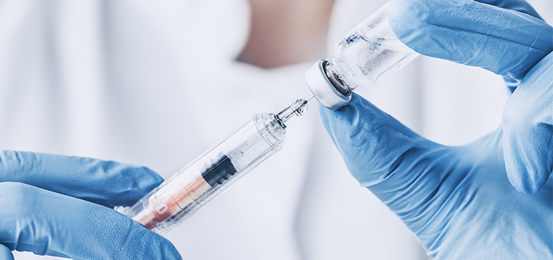
The topic of using glutathione injections for health purposes has been a major debate in the scientific community. While some people argue that these injections can have skin-lightening benefits, there are concerns about their safety and effectiveness. Experts are divided on whether intravenous administration of glutathione is appropriate especially when used for skin-lightening reasons(9).
There are risks associated with glutathione injections. These include localized reactions at the injection site, such as pain, swelling, and redness. Systemic reactions like fever, chills, headaches, and nausea have also been reported. Moreover, there is a risk of infection at the injection site that needs to be considered.
Regulatory Concerns and Lack of Standardization
The use of glutathione for purposes has raised concerns due to varying production and administration standards. In many places, there is a lack of glutathione production guidelines, making it difficult to ensure product quality, safety, and effectiveness(10). This regulatory gap increases the possibility of counterfeit products entering the market and potentially harming consumers.
Long-Term Implications and Uncertainties
-
Long-Term Safety Assessment
Assessing the long-term safety of glutathione production remains a challenge due to the changing landscape of this practice. Investigating and understanding its impact on different physiological systems is crucial, especially considering its widespread use in cosmetic applications.
-
Insufficient Clinical Evidence
Although there are some accounts and limited research, there is a noticeable lack of robust clinical evidence supporting the safety and effectiveness of using glutathione supplements for improving skin quality(9).
In summary, when it comes to using glutathione for skin enhancement there are side effects and risks that need to be carefully considered. These include reactions, health risks related to injections debates about administration, potential negative effects, regulatory concerns, and uncertainties, in the long run. All of these highlight the importance of making decisions consulting with experts, and following established safety guidelines.
Apart from the highlighted drawbacks of glutathione, there are also some societal controversies about skin whitening. So as to give you a balanced perspective of glutathione and skin whitening, we will consider some of these controversies.
Controversies Surrounding Skin Whitening
Societal Perceptions and Ethical Considerations
Skin lightening has sparked controversy due to societal perceptions and ethical discussions. The aspiration for skin tones often stems from norms, beauty standards, and historical influences. This creates an interplay of factors that require examination.
Cultural Beauty Standards

Different cultures and societies have varying preferences when it comes to skin tone. Some societies consider skin as a symbol of beauty, purity, and wealth. These ingrained beauty standards can strongly influence individuals leading them to pursue skin-lightening as a way to conform to these ideals.
Historical and Colonial Influences
In regions, historical contexts shaped by colonization have perpetuated the belief that lighter skin is superior. The legacies of colonialism have deeply impacted how people perceive skin color molding consciousness and perpetuating the preference, for complexions.
Ethical Concerns
The promotion of skin-lightening products raises dilemmas particularly when it reinforces beliefs or targets marginalized communities. Ethical considerations also extend to health risks associated with practices used for lightening the skin. Therefore it is crucial to scrutinize these practices while promoting products.
A Few Approaches to Addressing the Controversy
-
Education and Awareness
It is essential to increase awareness, about the consequences of skin whitening and the potential health risks it poses. By promoting decision making we empower individuals to assess influences critically and make choices that align with their personal values.
-
Promotion of Self-acceptance and Diversity
Embracing self-acceptance and celebrating the range of skin tones are essential in cultivating a body image. Implementing initiatives that challenge beauty standards can play a role in reshaping societal perceptions.
Glutathione Administration
Dosage and Recommended Use
Glutathione oral supplements are available, in dosages. The recommended use may vary based on factors such as individual goals, body weight, and overall health. It is important to consult with healthcare before starting any supplements to determine the dosage for your specific needs.
Duration of Action
The timeframe for the effects of glutathione oral supplements can differ from person to person. While some individuals may see changes within a week, others might require use for several months. It’s worth noting that individual responses can be influenced by factors like metabolism, genetics, and lifestyle choices. Patience and adherence to the recommended dosage are essential for achieving results.
Topical Application
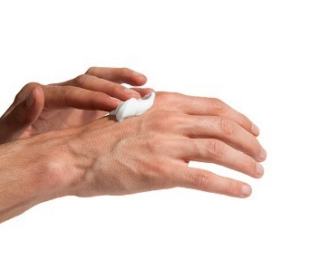 Topical application of glutathione involves using creams, lotions, or serums that contain glutathione as an ingredient. Unlike oral supplements that affect the body internally, topical application directly targets the skin. The effectiveness of topical glutathione can be influenced by factors such as formulation, concentration, and delivery system. Results from the application may be more localized and gradual compared to supplementation.
Topical application of glutathione involves using creams, lotions, or serums that contain glutathione as an ingredient. Unlike oral supplements that affect the body internally, topical application directly targets the skin. The effectiveness of topical glutathione can be influenced by factors such as formulation, concentration, and delivery system. Results from the application may be more localized and gradual compared to supplementation.
Considerations when Choosing Topical Products
When selecting products there are several considerations;
-
Concentration
Look for products with a concentration of glutathione supported by clinical research. However, note that using higher concentrations of a product may not always be beneficial; it could potentially cause skin irritation.
-
Ingredients and Additives
Some products also include ingredients, like antioxidants, vitamins, and moisturizers along, with glutathione. It is important to evaluate how these ingredients work together to promote skin health, considering that glutathione itself is an antioxidant.
-
Formulation
Also, you should consider the compatibility of the product with your skin, as most glutathione topical products are manufactured specifically for different skin types. Lighter formulations might be suitable for oily skin, while richer ones could benefit drier skin types.
-
Patch Test
Finally, ensure you carry out a patch test before starting on glutathione treatments to ascertain compatibility and to identify potential allergic reactions.
Conclusion
See that! We have exhaustively discussed everything you should know about glutathione and it helps your skin. However, while glutathione shows promise in improving the skin, achieving vibrant skin involves more than one element. Overall skin health is a combination of factors such as maintaining a diet rich in antioxidants, regular exercise, proper hydration, and diligent skincare routines. It’s important to embrace diversity nurture self-acceptance and prioritize well-being as they contribute to the picture of radiant skin that reflects confidence and self-assurance.
Understanding the importance of glutathione to your skin helps you make choices that align with your goals and values. Remember that beauty cannot be defined by a standard; it expresses your essence. As you embark on this journey towards more radiant skin, seeking professional guidance and adopting a holistic approach guide you towards achieving your desired results.
References
- Statista. (2023, February 14). Beauty and personal care outlook: Worldwide. Retrieved August 29, 2023, from https://www.statista.com/outlook/cmo/beauty-personal-care/worldwide
- Wu G, Fang YZ, Yang S, Lupton JR, Turner ND. Glutathione metabolism and its implications for health. J Nutr. 2004 Mar;134(3):489-92. doi: 10.1093/jn/134.3.489. PMID: 14988435.
- Jefferies H, Coster J, Khalil A, Bot J, McCauley RD, Hall JC. Glutathione. ANZ J Surg. 2003 Jul;73(7):517-22. doi: 10.1046/j.1445-1433.2003.02682.x. PMID: 12864828.
- Lushchak VI. Glutathione homeostasis and functions: potential targets for medical interventions. J Amino Acids. 2012;2012:736837. doi: 10.1155/2012/736837. Epub 2012 Feb 28. PMID: 22500213; PMCID: PMC3303626.
- Pillaiyar, T., Manickam, M., & Namasivayam, V. (2017). Skin whitening agents: Medicinal chemistry perspective of tyrosinase inhibitors. Journal of Enzyme Inhibition and Medicinal Chemistry, 32(1), 403-425. https://doi.org/10.1080/14756366.2016.1256882
- Sonthalia S, Jha AK, Lallas A, Jain G, Jakhar D. Glutathione for skin lightening: a regnant myth or evidence-based verity? Dermatol Pract Concept. 2018 Jan 31;8(1):15-21. doi: 10.5826/dpc.0801a04. PMID: 29445569; PMCID: PMC5808366.
- Tan, B. L., Norhaizan, M. E., Liew, P., & Rahman, H. S. (2018). Antioxidant and Oxidative Stress: A Mutual Interplay in Age-Related Diseases. Frontiers in Pharmacology, 9. https://doi.org/10.3389/fphar.2018.01162
- Shan Z, Tan D, Satriano J, Silbiger S, Schlondorff D. Intracellular glutathione influences collagen generation by mesangial cells. Kidney Int. 1994 Aug;46(2):388-95. doi: 10.1038/ki.1994.286. PMID: 7967350.
- Sonthalia S, Jha AK, Lallas A, Jain G, Jakhar D. Glutathione for skin lightening: a regnant myth or evidence-based verity? Dermatol Pract Concept. 2018 Jan 31;8(1):15-21. doi: 10.5826/dpc.0801a04. PMID: 29445569; PMCID: PMC5808366.
- Minich, D. M., & Brown, B. I. (2019). A Review of Dietary (Phyto)Nutrients for Glutathione Support. Nutrients, 11(9). https://doi.org/10.3390/nu11092073

 By Nancy H, PharmD
By Nancy H, PharmD
